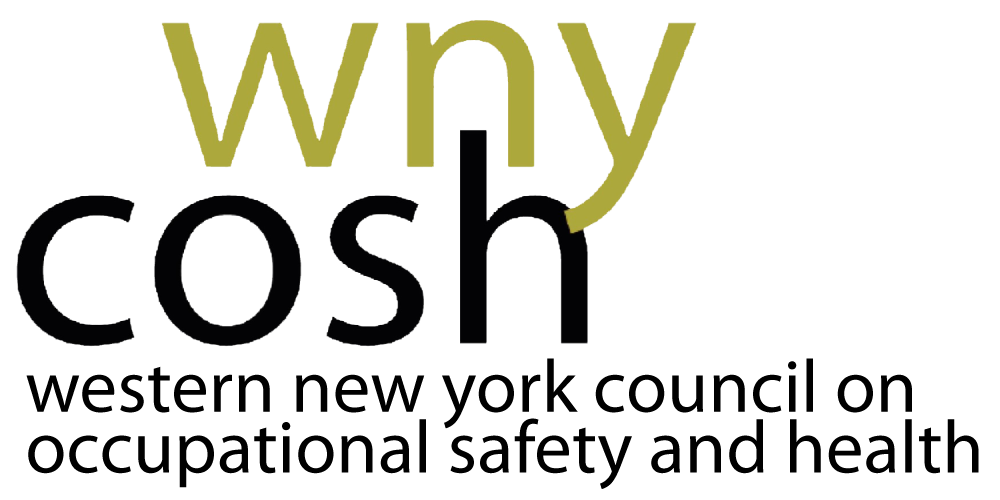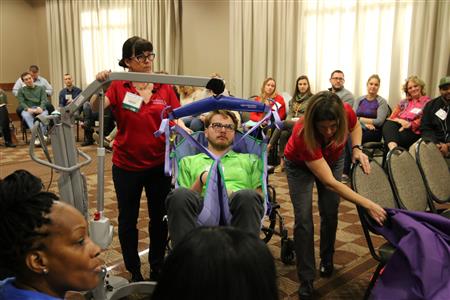11th Annual Safe Patient Handling Conference
Hofstra University Student Center
Hempstead, NY
Conference Description and Learning Objectives/Outcomes
Welcome to the 11th Annual Safe Patient Handling Conference. This conference is co-provided by the New York State Department of Labor (NYSDOL), Western New York Council on Occupational Safety and Health (WNYCOSH) and the New York State Zero Lift Task Force (ZLTF). The NYSDOL has overall responsibility for obtaining Continuing Education Credits, WNYCOSH has the bookkeeping responsibility, and the ZLTF is instrumental in the development and promotion of the conference. All have partnered to ensure the 11th Annual Safe Patient Handling Conference provides an excellent learning opportunity for all those in attendance.
2019 Conference Format:
The trademark of these conferences has been the interactive learning experience provided along with the equipment labs which focus on demonstrating the multitude of ways mobility equipment can be used in hospitals, residential and home settings. Although the 2019 conference is a one-day conference this format will be continued. Conference attendees must register in one of three tracks and seating is limited in each of these tracks. These tracks filled up quickly. If the track you desire is sold out, please consider registering for a track that still has open slots. All attendees, regardless of the track they are in, will attend all the General Lecture Sessions and will rotate through each of the equipment lab sessions.
The tracks being offered are:
Track 1 – Acute Care
Track 2 – Long Term Care /Sub-Acute Rehab
Track 3 – Caring for People with Developmental Disabilities (DD) or Mental Health Disorders (MHD)
The same speakers will be consistent throughout your track. The sole purpose of the tracks is to facilitate networking within each healthcare specialty and allow discussions to be pertinent to their work setting. If your preferred track is sold out, you are encouraged to register for another track since all attendees will be exposed to the same equipment and similar scenarios.
Due to occupancy laws each track will be limited to 70 people. For this reason you will be required to stay in the track you selected.
Each Track will rotate through three different equipment “labs”. Each “lab” will focus on certain types of patient movement and equipment options available.
• Session 1 – Bed mobility (repositioning, wound care, ADL Tasks, catheter care etc.)
• Session 2 – Transfers utilizing full mechanical lifts, ceiling lifts and lateral transfers
• Session 3 – Special/unusual events (Codes, car extrications, falls in bathrooms or tight spaces etc.)
Built into the agenda is ample time to visit vendors, network with peers or consult with instructors.
NOTE: This conference is suitable for all levels of SPH experience. It is the intent of the conference organizers to provide a fully accessible learning environment, suitable for all learners. If you have any special needs, please provide the information on the registration form or contact maureencox12 @gmail.com or brbrstanley0903@gmail.com. Hofstra University is ADA compliant.
CANCELLATION POLICY: Registration fees are Non-Refundable, but a coworker may take your place, using the transfer process on Zippyreg. In the unlikely event that the conference is cancelled due to weather or other unexpected event, the conference will be rescheduled, and registrations will be applied to the rescheduled conference.
Conference Objectives: By the conclusion of this conference participants will be able to:
• Describe elements of a successful SPH program.
• Describe why a functional SPH committee is essential to a successful SPH program.
• Recognize why accurate, timely patient assessments are key to a successful SPH program.
• Justify that sound SPH principles can be transferred to any healthcare or community setting.
• Describe how to identify gaps in your SPH program and the means and procedures to report identified gaps.
• Use a patient movement algorithm that is based on patient functional mobility, regardless of the
healthcare or community setting.
• Describe the association between early mobilization of patients and clinical outcomes
• Identify environmental barriers in your workplace and develop mitigation strategies
• Troubleshoot conducting a safe transfer given unusual circumstances
• Identify associated risks of a transfer of a dependent individual from a vehicle
• Develop strategies of a safe transfer of an individual from the floor.
• Identify needed equipment and process changes in order to implement a successful and sustainable SPH program.






















